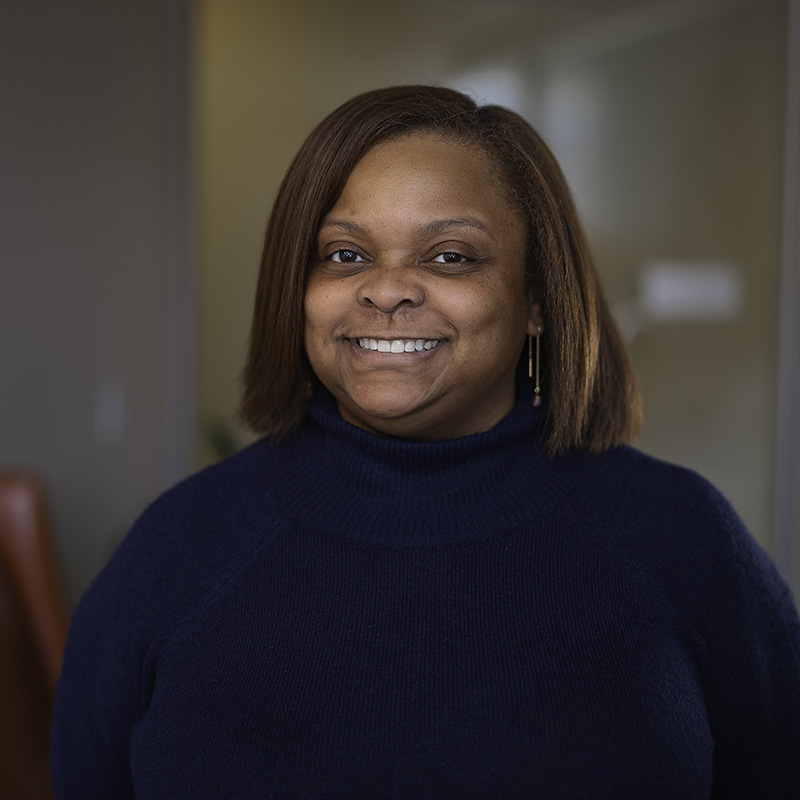
PERSPECTIVES | With Tiffany Roan
There is an indelible resilience and persistence that Black women have despite our complex history with America.
Within us is both a deep appreciation of how far we have come, directly alongside the acknowledgement of how far there is to go. Despite this, or perhaps because of it, we continue to set standards for progress; from Fannie Lou Hamer in the Civil Rights Movement, to Dr. Mae Jemison exploring space, for the multitudes of Black women who have become first time homebuyers year over year, we persist. And when Black women succeed, the entire country moves in that direction.
Homeownership rates for Black women are climbing across the country, and it’s unlocking a new future filled with economic possibilities. This trend is true here in Denver at the Dearfield Fund, a concessionary private equity fund where 60% of first time homebuyers are women. Since launching in 2021, the fund has invested alongside 179 first time Black homebuyers as part of a broader movement, to help build generational wealth and close the racial wealth gap. And this is just the beginning at The Dearfield Fund; we’re on a path to serve 1,000 individuals in the next 10 years, generating an estimated $100 million in Black wealth. To know that roughly $60 million of this new wealth is held by Black women in my community evokes a pride and a purpose that is hard to articulate. When Black women own their own homes, we are not only building wealth, we are building agency. There is agency and freedom in home ownership, the power to determine your future and the legacy you leave behind.
There is agency and freedom in home ownership, the power to determine your future and the legacy you leave behind. This legacy, this resistance, this wealth – it is worth celebrating.
-Tiffany Roan
And while you know we can and will celebrate, we also loudly assert that while home buying statistics are moving in the right direction, Black women still fall behind in overall wealth building. Burdened by education loan debt and inequality in career advancement and pay disparity, the banks of the racial wealth gap can often feel like they’re widening for us. And again we hold in tension, the appreciation of the celebration and the acknowledgement of the distance.
I was recently speaking with a Dearfield homeowner who said to me, “When one door closes, another opens. And with the Dearfield Fund, that door leads to a home that you own.” While the optimism of her words is palpable, it can also be hard to ignore the doors that have slammed in our faces as of late. In the U.S. today, it can feel like doors are closing in on Black women as we continue to push against the systems of inequity and oppression. Did we not hear the echoes of them slamming when the supreme court ended affirmative action in college admissions or when the Fearless Fund was targeted and attacked for its commitment to invest in women of color?
I hear it, I do. But I also hear that homeowner’s words and her optimism of the second door. The one that leads to a home that she owns, to a future of wealth, security and power. I am reminded of resilience and persistence, two qualities so deeply necessary in the work of disruption, of dismantling, of systems-change. I am reminded that we are just getting started at the Dearfield Fund for Black Wealth, on a path to close on 1,000 homes in Denver in the next 10 years. While I am clear about just how far we have to go, and I am so inspired by the success we have made and so deeply driven to unlock more doors to more homes for more women to own for themselves.
Founded by Denver-based philanthropic organization Gary Community Ventures, the Dearfield Fund for Black Wealth helps Black and African American communities build a foundation of intergenerational wealth and financial well-being, primarily through home ownership. To learn more, visit https://www.dearfieldfund.com.

CLIENT SUCCESS MANAGER, THE DEARFIELD FUND
Tiffany Roan, MPA
Tiffany is the bridge between prospective homebuyers and homeownership at the Dearfield Fund, which supports a holistic wealth building strategy through the post-home purchase journey. She has spent her career in the financial literacy field, educating individuals and creating curriculum about the practical steps they can take to improve their financial wellbeing. Her recent endeavors have been focused on behavioral finance and intergenerational wealth building for Black and rural households.
One of the things that has drawn her to this work is the influence of family financial decisions and their impact. Born and raised in Tennessee, she saw the repercussions of the lack of financial education and how racial policies negatively affect the ability to obtain wealth for people of color. She desires to provide resources and grow as a subject matter expert to debunk the idea that Black and brown families cannot build wealth and lack financial aptitude.